Lughnasa and the Michaelmas Moon
 Monday gratefuls: My sisters: Mary, BJ, Sarah, Anne. My brother: Mark. My ancient brothers: Tom, Paul, William, Mario. Family. It is both what you make it and part of what made you. Three-hole punch. Internet recipes. Cooking. Inogen. Rain and a cool night. Living on the Mountain top.
Monday gratefuls: My sisters: Mary, BJ, Sarah, Anne. My brother: Mark. My ancient brothers: Tom, Paul, William, Mario. Family. It is both what you make it and part of what made you. Three-hole punch. Internet recipes. Cooking. Inogen. Rain and a cool night. Living on the Mountain top.
Sparks of Joy and Awe: Rain on the deck
Tarot: Nine of Stones, Wildwood Deck
 The Wildwood deck bases its suits and major arcana in Celtic myth and lore. And, it correlates them to the Great Wheel. I’m learning from the deck, deepening my own thinking about the Great Wheel, about this World, this Earth onto which I was thrown along with each of you reading this.
The Wildwood deck bases its suits and major arcana in Celtic myth and lore. And, it correlates them to the Great Wheel. I’m learning from the deck, deepening my own thinking about the Great Wheel, about this World, this Earth onto which I was thrown along with each of you reading this.
My interest in the Great Wheel ignited during my search for a theme, a focus for writing. Kate suggested I look into my heritage. At the time I knew about Richard Ellis, my indentured servant ancestor who arrived in the U.S. in 1707. His father, a captain in William and Mary’s occupying army in Ireland, came from Wales. Denbigh. I also knew that the Correls, also on my father’s side, immigrated during the Great Potato famine in the late nineteenth century.
So, things Celtic. I expanded my reach later on into Northern European myth and legend. Genetics put this strain of my family history as more significant than the Celtic, but I was well into the Celtic material before I got genetic information through 23andme.
 This learning coincided with my leaving the Presbyterian ministry and moving toward Unitarian-Universalism. I found(find) the UU movement liberating, but thin soup. It’s a nice refuge for folks fed up with traditional religious institutions, but in itself it offers only a bland diet of warmed over religious thought disconnected from its roots, decent poetry, and a laudable willingness to take action for social justice.
This learning coincided with my leaving the Presbyterian ministry and moving toward Unitarian-Universalism. I found(find) the UU movement liberating, but thin soup. It’s a nice refuge for folks fed up with traditional religious institutions, but in itself it offers only a bland diet of warmed over religious thought disconnected from its roots, decent poetry, and a laudable willingness to take action for social justice.
Though I transferred my credentials to the UU, I found my attempts to enter its ministry regression. After a couple of embarrassing and unnecessary attempts. (Kate told me I was making a mistake.) I needed to write, to be away from religious institutions. Not try again in a profession which did not fit me from the beginning.
After I left my ministry monkey back in its theological jungle, I became a flat-earth humanist. Atheist. No afterlife. Death=extinction. No world beyond the phenomenal one. And that one only as it can be understood through science. Logic. Yes. Data. Yes. Facts. Yes. Myth. No. Other World. No. Spirituality. No. Learning from poetry and the world’s religious traditions? No.
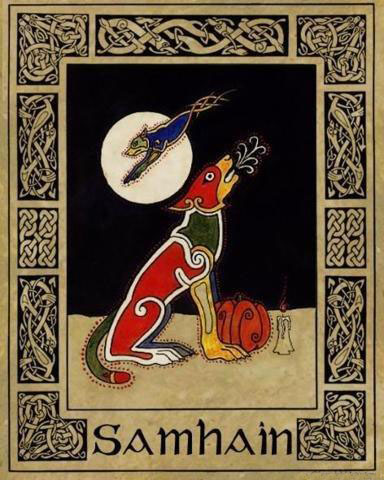 Oh, I used the Celtic and Northern European folk traditions in my writing, yes. But, did I believe it? No. How could I?
Oh, I used the Celtic and Northern European folk traditions in my writing, yes. But, did I believe it? No. How could I?
Yet. The Great Wheel. Fit so well with my Thomas Berry inflected view of climate change work: creating a sustainable future for humans on this planet. It helped me into the thought world, the faith world of the early Celts.
When Kate and I moved to Andover in 1994, I’d already written three novels using the faith worlds of early Irish, Welsh, Scots, Cornish, and Breton folk. And, one using the Ragnarok idea from Northern European faith worlds.
We wanted to grow perennial flowers. Have fresh cut flowers every day. So, I learned about spring ephemerals, corms, tubers, bulbs. Food for them. The culture they needed in terms of soil, light, protection.
Then vegetables. A degree in horticulture by correspondence from a university in Guelph, Ontario. An orchard. Bees. A fire pit.

Our life together, Kate and mine, had Irish Wolfhounds, Whippets, and plants. Lots and lots of plants. We worked together, sweated together. Got sticky harvesting honey. Steamed from canning. Drying and freezing became a usual part of our fall.
It was hard manual labor and I loved it. So did Kate. We also loved each other and who each other was when working outside. When putting food by.
As the life of our gardens became our lives, the Great Wheel began to make deeper and deeper inroads into my heart. The Winter Solstice became my High Holiday. Or, my Deep Holiday. I celebrated the Celtic holidays, wrote e-mails and blog posts about them in addition to using them in my novels.
 At some point I realized I had become a pagan. Not in any particular sense like Wicca, or Druidry, or Witchcraft, just an ordinary pagan, a person who found his religious life adequately nourished by the turning of the seasons, by the natural world, by love.
At some point I realized I had become a pagan. Not in any particular sense like Wicca, or Druidry, or Witchcraft, just an ordinary pagan, a person who found his religious life adequately nourished by the turning of the seasons, by the natural world, by love.
I’ll get to the nine of Stones later, but it supports this journey in a very specific way.


 Been pondering the cards. Again. Still. Drew the eight of pentacles*. Again. Key words from the Druid Tarot Book: Steady progress. Apprenticeship. Training. Makes sense to me after the High Priestess and Death.
Been pondering the cards. Again. Still. Drew the eight of pentacles*. Again. Key words from the Druid Tarot Book: Steady progress. Apprenticeship. Training. Makes sense to me after the High Priestess and Death.
 So many help me. Jon, Ruth, Gabe came up Saturday. We had chicken pot pie and I sent them home with two. They also went to Upper Maxwell Falls to scatter some more of Kate’s ashes. I didn’t feel quite up to going and I wondered if it might be better anyhow. Allow them their own time, their own way of saying goodbye.
So many help me. Jon, Ruth, Gabe came up Saturday. We had chicken pot pie and I sent them home with two. They also went to Upper Maxwell Falls to scatter some more of Kate’s ashes. I didn’t feel quite up to going and I wondered if it might be better anyhow. Allow them their own time, their own way of saying goodbye.


 Anyhow my point here is that I’m doing my own thing with these daily cards and I’m not only reading the day, but the trends. I’ve had so many cards that spoke to my anima. I’ve remarked on this before. I’ve also had cards like the Hanged Man that speak to a transformation in values, in beliefs, in life way.
Anyhow my point here is that I’m doing my own thing with these daily cards and I’m not only reading the day, but the trends. I’ve had so many cards that spoke to my anima. I’ve remarked on this before. I’ve also had cards like the Hanged Man that speak to a transformation in values, in beliefs, in life way. Wednesday gratefuls: Orgovyx. Biologic Pharmacies. Money. CBE. The New Year. Rigel, sweet girl. Kep, happy boy. Dan Herman. Rich Levine. Alan Rubin. Marilyn Saltzman. Jamie Arnold. Judy Sherman. The Ancient Ones on peregrinatio. Safeway pickup. Cool breeze last night.
Wednesday gratefuls: Orgovyx. Biologic Pharmacies. Money. CBE. The New Year. Rigel, sweet girl. Kep, happy boy. Dan Herman. Rich Levine. Alan Rubin. Marilyn Saltzman. Jamie Arnold. Judy Sherman. The Ancient Ones on peregrinatio. Safeway pickup. Cool breeze last night.
 Barring more illness on Jon’s part or another wreck on Ruth and Gabe’s, we’ll finally distribute some of Kate’s ashes at Upper Maxwell Falls this Saturday. When Jon, Ruth, and Gabe can make it. Ruth told me she wanted some of my chicken pot pie so I’m making some on Friday. It’s been a while. Usually makes four to five full pie tins. Freeze well, too. I’ll give her two and keep two here. A good incentive to actually cook.
Barring more illness on Jon’s part or another wreck on Ruth and Gabe’s, we’ll finally distribute some of Kate’s ashes at Upper Maxwell Falls this Saturday. When Jon, Ruth, and Gabe can make it. Ruth told me she wanted some of my chicken pot pie so I’m making some on Friday. It’s been a while. Usually makes four to five full pie tins. Freeze well, too. I’ll give her two and keep two here. A good incentive to actually cook. Realizing I’ve been such a flat-earth humanist for so many years. Death=extinction. No god. Life is absurd. Don’t give me any of that metaphysical stuff. Changing.
Realizing I’ve been such a flat-earth humanist for so many years. Death=extinction. No god. Life is absurd. Don’t give me any of that metaphysical stuff. Changing.
 I’m beginning to open myself to the idea. What does it mean? What could it mean? I can feel the consolation it brings and consolation is pretty important. I know that right now. What about my embrace of the Great Wheel? Was I a Druid in a past life? Or, at least a believer in the auld religion?
I’m beginning to open myself to the idea. What does it mean? What could it mean? I can feel the consolation it brings and consolation is pretty important. I know that right now. What about my embrace of the Great Wheel? Was I a Druid in a past life? Or, at least a believer in the auld religion? I miss him. That guy that could embrace the irrational, the possibility of an Other World. And not cringe. Not shrink away. He was a bad boy of the Enlightenment. Oddly, the place I’ve retained most of him is in my Taoist thought. Wu wei? Yes. Sometimes. Follow the chi? Yes. Always. Experience the contradictions of consciousness and dreaming? Oh, yes. Follow the I-Ching? Yes.
I miss him. That guy that could embrace the irrational, the possibility of an Other World. And not cringe. Not shrink away. He was a bad boy of the Enlightenment. Oddly, the place I’ve retained most of him is in my Taoist thought. Wu wei? Yes. Sometimes. Follow the chi? Yes. Always. Experience the contradictions of consciousness and dreaming? Oh, yes. Follow the I-Ching? Yes. “Keywords: Clarity. Clean break.” DTB
“Keywords: Clarity. Clean break.” DTB This card speaks directly to my inner world. The Celts, Jung, my two favorite places on Earth. Appropriate that it should signify a break through. There are dark clouds there, too, and a Bird, maybe a Heron? The Heron is the on the card for the King of Vessels in the Wildwood Tarot.
This card speaks directly to my inner world. The Celts, Jung, my two favorite places on Earth. Appropriate that it should signify a break through. There are dark clouds there, too, and a Bird, maybe a Heron? The Heron is the on the card for the King of Vessels in the Wildwood Tarot.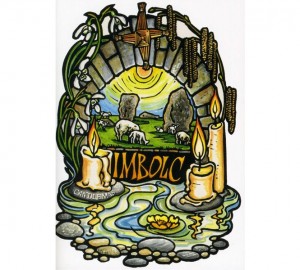

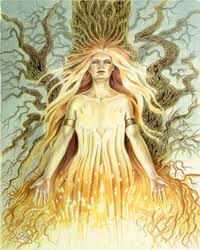



 In Merry England the Twelfth Night was another time for the emergence of the fool, for the inversion of roles, for letting go of the amazement of Christmastide in preparation for the now imminent return to ordinary time. We saw this same impulse on Distaff Day and in the male equivalent, Plough Monday.
In Merry England the Twelfth Night was another time for the emergence of the fool, for the inversion of roles, for letting go of the amazement of Christmastide in preparation for the now imminent return to ordinary time. We saw this same impulse on Distaff Day and in the male equivalent, Plough Monday. If we take the other thread, the pagan/supernatural thread, during Christmastide, Yule, this marks farewell for the Solstice, too. We now know the Sun has committed for another year, the crops and the livestock will feel the heat, the warmth, the energy, the vitality. Whatever fears we had as the nights grew longer and the days colder, have given way to confidence that Spring and Beltane will come once again.
If we take the other thread, the pagan/supernatural thread, during Christmastide, Yule, this marks farewell for the Solstice, too. We now know the Sun has committed for another year, the crops and the livestock will feel the heat, the warmth, the energy, the vitality. Whatever fears we had as the nights grew longer and the days colder, have given way to confidence that Spring and Beltane will come once again.

 At our elevation the Lodgepole guard the Aspen whose golden leaves in the fall proceed their winter sleep. At lower elevations the Ponderosa, the Spruce stand guard. At the treeline ancient Bristlecone Pines patrol. In other parts of Colorado the Douglas Fir, the Engleman Spruce, the Pinon Pine, the Rocky Mountain Juniper, and the White Fir watch. The Great Spirit reminds us each Winter of the Evergreens special gift.
At our elevation the Lodgepole guard the Aspen whose golden leaves in the fall proceed their winter sleep. At lower elevations the Ponderosa, the Spruce stand guard. At the treeline ancient Bristlecone Pines patrol. In other parts of Colorado the Douglas Fir, the Engleman Spruce, the Pinon Pine, the Rocky Mountain Juniper, and the White Fir watch. The Great Spirit reminds us each Winter of the Evergreens special gift.
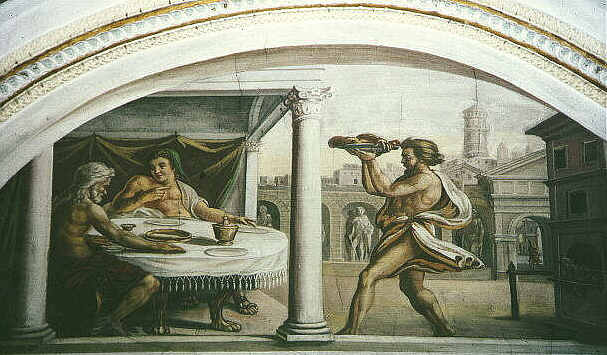
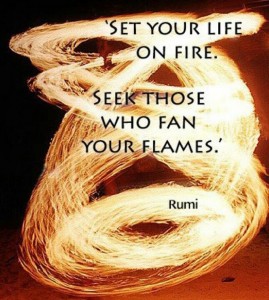 Sæhrímnir
Sæhrímnir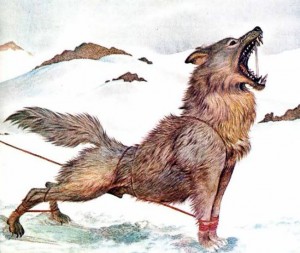 Even pagans have a conflicted relationship with nature. Yes, she provides soil for crops, rain and sun from them to grow, and game to supplement domesticated animals like goats and cows and chickens. But she also had predators in the wild like wolves and game animals like the boar, who killed many hunters.
Even pagans have a conflicted relationship with nature. Yes, she provides soil for crops, rain and sun from them to grow, and game to supplement domesticated animals like goats and cows and chickens. But she also had predators in the wild like wolves and game animals like the boar, who killed many hunters.